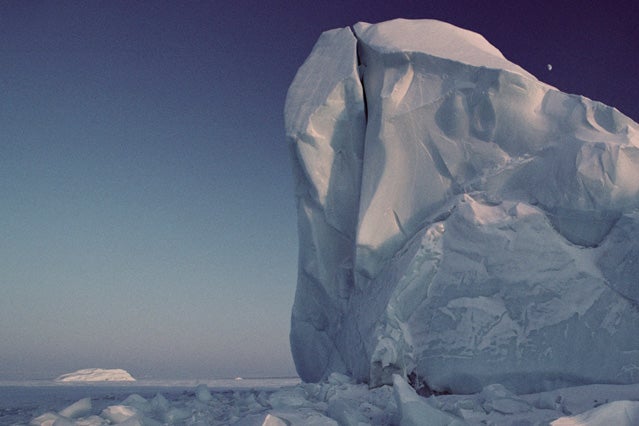In the winter of 1854, just below the North Pole, an expedition of 19 men had been trapped for almost two years in temperatures that averaged -46 F, their ship stuck in the ice—slowly starving, long presumed dead. If this story sounds familiar, it probably isn’t. Dr. Elisha Kent Kane’s harrowing expedition to discover the fate of renowned Arctic explorer Sir John Franklin has been largely forgotten in the annals of polar exploration. At the time, he was broadly celebrated in the United States. When he miraculously returned alive from the Arctic in 1855 with most of his crew intact, he was awarded the ’s top honors and finally laid to rest in a funeral train said to be the longest of the century, second only to that of Abraham Lincoln. Todd Balf’s new book, , rediscovers that unlikely explorer and his improbably successful expedition. We caught up with Balf to figure out why we should remember the man.
How did you get interested in this obscure expedition?
I was researching my last book, , about attempts to discover a trade route through Panama in the same time period, the 1850s. It was an extraordinary period for discovery, and American discovery in particular. Explorers were looking to answer all these big questions. Arctic exploration was that era’s equivalent of landing on the moon.
I happened across a mention of Kane as a notable adventurer, but, from what little I read, I got the impression that he had captained this bumbling expedition. When I looked into it further, I was amazed. He had achieved a record Northern latitude—and he’d had such a rough time doing it. After spending months stuck in the ice, he successfully led his men to safety by way of an 84-day trek to Upernavik. He brought along 18 men and only lost three of them.
You never hear about Elisha Kane. Franklin, Amundsen, McClure—they all have 100 books recounting their expeditions. Why not Kane?
You have to remember when he was exploring and where he was from. He was the first legitimate American Arctic explorer, but a lot of things were lost to history after the Civil War. Documents were destroyed and Americans were much more inwardly focused—not as interested in exploration. The British really had a lock on the Arctic. They’d been looking for the Norwest Passage for centuries. Sir John Franklin still has a statue of himself in most English towns. Before the 1850s, we really weren’t covering the globe and trying to answer these big questions with exploration. You can trace the beginning of American fascination with the Arctic to Kane.
What was his legacy?
It is ironic that we say that we don’t know much about him, because he left such a long paper trail. His journals, books, magazine articles, drawings, sketches, maps—they really influenced explorers of the period.
He particularly shaped travel in the Arctic. Franklin didn’t like dogs and didn’t trust the Inuit. Kane really revolutionized overland exploration by adopting native practices, including dogsleds. It’s hard to find a person of that generation who was more receptive and open-minded about native people. His team would not have survived without the cooperation and support of the native communities.
You include a lot of colorful little excerpts from his journals. Discovering them must have been like finding a treasure trove.
You can’t help but enjoy reading them—his writing’s marvelous. A lot of journals from that period do seem dated, but he had a really distinctive voice. You also get the sense that he was truly enjoying himself.
Is it right to call him a masochist? His men mutinied at one point because he refused to abort the expedition when anyone in their right mind would have.
He was a problem solver. He was supremely confident in his ability to trouble-shoot. Everybody else on the ship was saying, let’s go! And still he’s thinking, I wanna get one more shot at the North.
What kept him going?
I think there was a feeling of American exceptionalism. That ability to say, we did what we came here to do. I think that for us, in this day and age, that’s hard for us to relate to.
Are you saying we’ve lost something?
The questions that we want answered today are smaller—narrower. The questions in that era were so vast. You had the best and the brightest saying that there was an open polar sea, which Kane was looking for. These were not crackpots—these were heavy-hitting scientific thinkers. It was the right time to be looking for adventure because you didn’t know what was in the Amazon, or in the Panamanian jungle, or in the Arctic. We finally had the means and just enough know-how to get in and try our luck.
Was Kane a different breed of explorer from the “raise-awareness” types we have today?
I don’t think he’s that different from us. Kane was reckless and spirited; he was a person who needed to live on the edge. In terms of his hunger to discover the world and feel that pure vitality you get at your toughest point on an expedition, I think that’s probably universal.
Read an excerpt from Todd Balf’s Farthest North.


